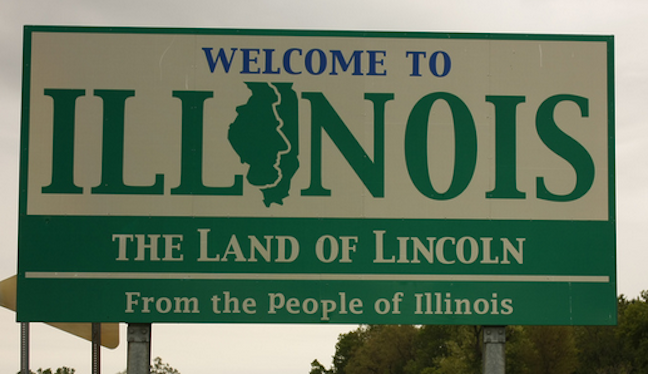Illinois Law Allows Employers To Offer Payroll Cards In Lieu Of Paychecks, Only Limits Some Fees
UPDATE: Employees in Illinois now have the option to receive their pay through payroll cards. Governor Pat Quinn officially signed into law today a bill that allows employers to offer the popular, but scrutinized form of payment on a voluntary basis.
According to the Chicago Tribune, Quinn signed the bill at the headquarters of Community Organizing and Family Issues, a nonprofit that lobbied for the bill.
“We don’t want unfair, artificial fees to be attached to those payroll cards. We don’t want to have policies that are unfair,” Quinn said at the signing.
——-ORIGINAL STORY———-
In spite of the growing backlash against employers who push workers to accept their wages on prepaid debit cards — some of which come loaded with all sorts of fees — Illinois Governor Pat Quinn is expected to sign a bill today that allow employers to offer these controversial cards as a legitimate form of payment.
The bill, which was approved by legislators in May, comes with several restrictions, but fails to completely ban costly fees that have been known to cut into an employees take-home pay, the Chicago Tribune reports.
Currently, Illinois law requires employers to issue a paper check or direct deposit to employees. Once the new bill is signed, employers can begin offering the debit card-like payroll cards.
Christina Tetreault, staff attorney for Consumers Union tells Consumerist that the Illinois law takes steps to limit fees and offer other payroll options, making the product safer than it may have been otherwise.
Under the new law, enrollment in payroll cards would be voluntary and employers would be required to provide employees with an itemized list of fees, which range from $0.50 to $5.
While the Illinois law initially banned the use of inactivity fees, legislators changed their tune and eventually allowed for the fee to be collected after one year of no use. Additionally, employees who opt for the payroll cards will receive two free declined transactions per month before fees are incurred.
The cards, which lack many of the same regulations enacted for traditional debit cards, have become a popular option for disbursing payroll and benefits, despite employee and consumer advocates concerns over to the often fee-laden cards.
“For some workers, a payroll card may offer benefits over other options,” CU’s Tetreault tells Consumerist. “However, using payroll cards can come with serious downsides, including fees that undercut wages, and a lack of choice in how to be paid.”
Still, many employers contend that the use of the cards are a more streamlined and economically effective payment method. Aite Group, a Boston-based research and consulting firm, tells the Chicago Tribune that businesses can save up to $2.75 each time they electronically load the cards instead of cutting a check.
Although the cards may be appealing to employers, the fees add up quickly and can be particularly devastating for employees, many of whom are being paid minimum wage.
Last July, an ex-McDonald’s worker in Pennsylvania sued her former employers because the franchisee mandated use of a Chase payroll card that included fees like $1.50 ATM charge, a $5 charge for over-the-counter cash withdrawals, $1 per balance inquiry, and $.75 for online bill payment. The lawsuit spurred a petition garnering more than 286,000 signatures urging McDonald’s to offer other forms of payment.
McDonald’s maintained that it allows franchisees to determine the best way to pay their employees, provided they do so within the boundaries of the law.
However, those claims likely won’t provide the company much room to stand on, now that the National Labor Relations Board Office of the General Counsel announced that McDonald’s could possibly held responsible for franchisees’ bad labor practices – including unfair requirements to use fee-filled payroll cards.
Gov. Quinn to sign payroll cards bill today [Chicago Tribune]
Want more consumer news? Visit our parent organization, Consumer Reports, for the latest on scams, recalls, and other consumer issues.


